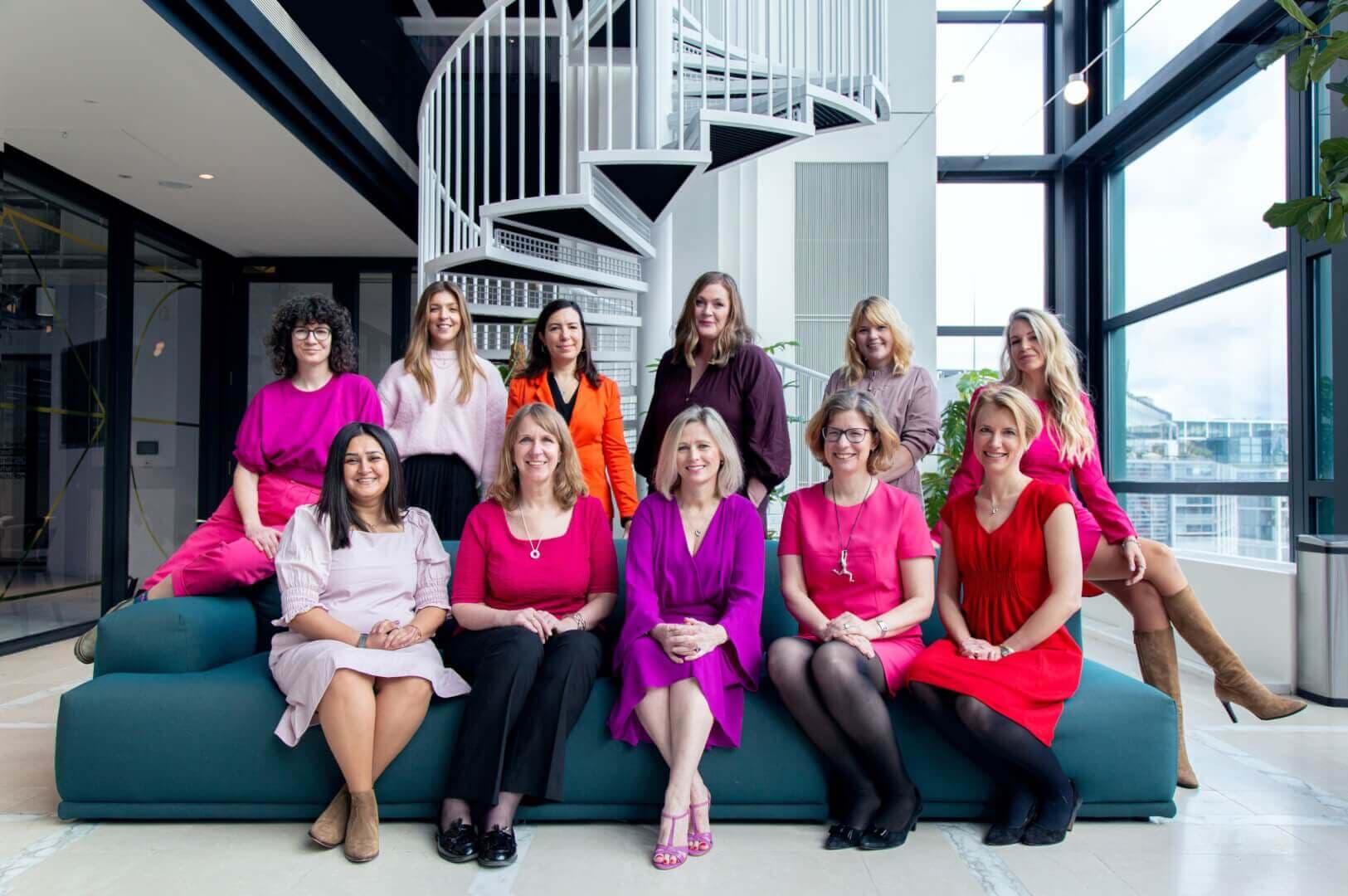The Weber Shandwick collective announces bespoke women’s health offering in EMEA
In honor of International Women’s Day, The Weber Shandwick Collective has announced the launch of their first bespoke, cross-agency offering committed to shaping healthier futures for all women. The Weber Shandwick Collective: Women’s Health convenes a passionate group of agency health experts from United Minds, Flipside Health, That Lot and Weber Shandwick, and covers every angle of policy and advocacy, health communications, corporate communications, employee engagement, digital innovation and design experience. The Collective will be fueled by unparalleled culture and data intelligence while also working closely with a curated group of external advisors from business, government, academia and society.

TWSC: Women’s Health also announced the launch of their very first available insights product, The Women’s Health Indicator. Developed by data analysts and behaviour experts, this proprietary product informs and identifies specific gaps in women’s health by analysing and assessing thousands of data points measured across society, media, and policy.
“Our research shows that some of the most prevalent and threatening diseases are not well understood by women, nor are they communicated about specifically with women in mind. As a leading global healthcare consultancy, we have a responsibility to help close the gender gap in health communications,” commented EMEA Health Managing Director, Rachael Pay. “The very definition of women’s health must change; women must be placed at the heart of health. By placing women’s health at the intersection of our agency Women’s Health team we are firmly positioned to be a catalyst for change by bringing the best solutions to our clients.”
Research recently undertaken by the Weber Shandwick Collective reinforces the need for bespoke multi-stakeholder education and awareness campaigns to not only reach women but to resonate with them to drive meaningful change.
Findings of media coverage and social media data analysed over the period January 2021 – January 2023[i] show:
- Despite evidence that women are at a higher risk of serious diabetes complications and death than men[ii], only 3% of the total diabetes conversation is female-focused
- Despite a four-fold increase in the development of autoimmune conditions in women[iii], information on signs and symptoms of rheumatoid arthritis (RA) in women are poorly identified or communicated, with less than 12% of online content specific to RA in women
- Despite the gender gap in awareness, diagnosis and treatment of coronary heart disease costing women’s lives[iv], findings show that less than 6% of discussions around heart attack symptoms specifically mentioned the female-specific symptoms of fainting, indigestion and extreme fatigue
To bring further knowledge and understanding to clients, TWSC: Women’s Health includes an external advisory board which spans all areas of business and includes advisors on topics ranging from women’s health equity and equality to Femtech innovation and public health.
Dr. Tammy Boyce, equity advisor to TWSC: Women’s Health, explains: “Women have been on the periphery of healthcare for too long, and it is time to address some of the marked inequalities and inequities that exist in healthcare. Life expectancy in women is no longer increasing in the UK. Effective communication that resonates and drives action is urgently needed to address the gender inequalities in health.”
TWSC: Women’s Health is equally committed to helping employers address how to normalise the conversation around women’s health in the workplace. Not only are women experiencing the menopause the fastest-growing demographic in the workforce in the UK, but a recent study by the British Menopause Society found that 47% of respondents who needed to take a day off work due to menopause symptoms said they wouldn’t tell their employer the real reason.
“As part of our drive to make business more human, we believe that employers who create a culture where conversation about health matters is encouraged will find that women are much more likely to feel confident about asking for the support they need to be effective in their role,” says Chris Payne, SVP United Minds. “Having policies in place is a foundational step, and they should be a starting point for open dialogue and empathetic conversation.”
In addition to the launch of TWSC: Women’s Health, Weber Shandwick is proud to be an industry leader in supporting women’s health and wellbeing through its own HR programmes and policies across EMEA. Helen Matthews, Weber Shandwick’s Chief People Officer, EMEA, said: “We are proud to have introduced best-in-class policies, focused on women and including menopause, invisible illnesses, flexible working and parental support policies. We are committed to ensuring that these policies are rolled out across the EMEA region by 2025 and are actively working to drive adoption in markets where the conversation is at different levels of awareness.”
[1] Talkwalker analysis of online news and social media from the last two years (January 2020 – January 2023).
[1] Guodong Xu, et al. Risk of all-cause and CHD mortality in women versus men with type 2 diabetes: a systematic review and meta-analysis. European Journal of Endocrinology. 2019. 180(4): 243-255. Available at: https://eje.bioscientifica.com/view/journals/eje/180/4/EJE-18-0792.xml
[1] Kronzer VL, Bridges SL, Davis JM. Why women have more autoimmune diseases than men: An evolutionary perspective. Evol Appl. 2021. 14(3): 629-633. Available at: https://www.ncbi.nlm.nih.gov/pmc/articles/PMC7980266/
[1] British Heart Foundation. Heart attack gender gap is costing women’s lives. [Online] Available at: https://www.bhf.org.uk/what-we-do/news-from-the-bhf/news-archive/2019/september/heart-attack-gender-gap-is-costing-womens-Lives. Last accessed: February 2023